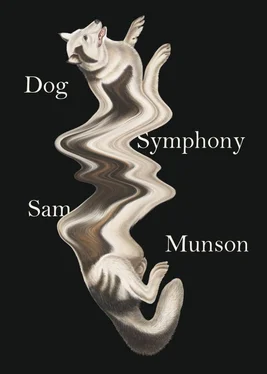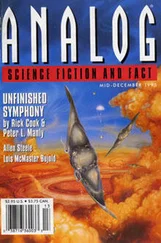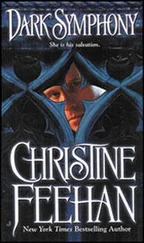He and Fulvio lived, I learned, across from La Chacarita in a three-story house plastered and painted the color of tangerines. Over the meal he invited me to, which was neither lunch nor dinner, the brothers explained that they had grown up in this house and that they intended for their children to live in it after their own deaths. The teenage flower lackey was Fulvio’s son, Hilário. He was more than a lackey: he was also a veterinary intern at a rural clinic. Adriano’s daughter was named Luz Dar. Her cousin spent the whole meal casting lost, lustful glances at her breasts and eyes, at her sleek hair. She possessed a physical beauty (soft, snubbed melancholic chin; dewy irises; impeccable blackness behind her impeccable teeth) that stilled criticism and even observation. Her mother was dead. Her aunt, Fulvio’s wife, kept a watchful eye on Hilário as we ate an enormous salad, dandelion greens and tomatoes, and then rice and roasted eggplants, along with sweating cans of Quilmes beer, which everyone in the Taquini family seemed to prefer to wine. They served no meat, for which Fulvio and his wife Odolinda apologized. Prices have never been so high, Fulvio said, and you already know the sad state of my business affairs.
Ojea Meat Distributors was, it seemed, a well-known meat company, though none of the Taquinis could explain why Ana might be working there. A simple transcription error by the Department, a malicious prank by the man who answered the phone: both were possible. Hilário mentioned a friend who had found his own phone number disconnected for no reason. The number no longer worked, he said, and he was in this way cut off from the world. Both Odolinda and Fulvio agreed that it had become hard to contact people since the epidemic. Odolinda said I shouldn’t get confused, this was not the second coming of the dictatorship — whatever I might think, Rosas or Videla was nowhere to be seen in all this. She blamed Ana’s absence on what she first called “national preoccupation,” and then “civic preoccupation.” We are all trying our best to understand what these dogs mean, whether they are, in fact… here she trailed off, as if she did not want to disagree with her husband and brother-in-law before strangers. It was too late, Fulvio was already shouting that she had no right to question the night-dog phenomenon, he worked too hard and she saw the evidence herself of what they were. We can’t even afford fucking meat anymore, my love, Fulvio shouted, fists clenched. Odolinda shook her index finger near her husband’s black nostrils and cried out: Don’t tell me what to think, don’t be an asshole.
After they both apologized for this outburst (first to me, then to each other, then to their family members), Adriano related the story of our journey to see St. Christopher. Fulvio spat, literally spat, each time Adriano mentioned the cynocephalic saint. His wife said: Don’t be so theatrical, Fulvito. Her admonition warm, concealing her craterous laugh. Luz Dar said it was a shame they had knocked down the old prison. In a sense, said Luz Dar, you could call it our real heritage. Hilário fervently agreed, eyeing her breasts. Or they could have left it up, but as a museum, or they could have turned it into an office building. Anything would be better, said Fulvio. They could have built a dog crematorium. Luz Dar turned her (lightly cross-eyed) gaze to her cousin — who in a swift jerk removed his finger from his nose — and then to me. I did not want to weigh in on the dog question, I said, as a relative stranger. Adriano said his brother was right (I also kept quiet about his having lit a votive candle). Fulvio also did not know the exact date of the transformation of the carcel, and this troubled me far more than my having missed the news of the epidemic: the transformation of the Cárcel de Devoto into a shrine represented a massive loss to my profession. Odolinda blamed the University police cadres. They like keeping secrets for their own sake, she said. For example, I was trying to look up an old classmate of mine who works there, and they simply refuse to admit that she exists. They claimed her records were lost or stolen. It’s part of our civic preoccupation, I suppose, she went on, but it’s worrisome, as you yourself know, Mr. Pasternak.
No one could give me specifics about the epidemic. Fulvio said it was “the plague,” in English. Adriano said no, it had been swine flu. Odolinda objected: That was the whole problem, they never identified it. Luz Dar and Hilário kept silent, slowly drinking the whiskey their fathers had poured them from the bottle I’d brought. The Taquinis hadn’t lost anyone to the epidemic, I learned, which explained their unfamiliarity with it. Luz Dar, her voice raucous from the whiskey, said that someone she knew in school had an uncle who died. Hilário, who had grown more and more agitated during the conversation, was muttering something. His father said: Would you mind clarifying, Professor? No offense, Mr. Pasternak, but Hilário here often forgets that not everyone lives on his elevated plane.
Hilário looked at his father, wheezed, and said: It never happened, it’s complete nonsense.
Fulvio said that as long as Hilário lived under his roof he would show respect, especially in the presence of company. Hilário responded in a calm voice: All the rules about politeness in the world, he said, won’t change anything. The so-called epidemic never happened, it just didn’t. And these dogs are not the dead, Dad, you’re just using that as an excuse. Oho, said Fulvio, now you’re an expert in business affairs! Quite a son I’ve raised. Hilário looked again at his cousin, whose gentle and crooked smile encompassed him, me, her father, her aunt and uncle, and the dandelion leaves in the cracked wooden bowl.
I don’t claim to be any sort of expert, but I do know that if basic reality isn’t worth suffering for then nothing is. He drained his glass and he too smiled, the ineffable smile that afflicts you in your youth, causeless and indeed humiliating. There you go again, Professor, said Fulvio. He sounded less sure in his use of the title. And rightly so. Academic work and reality stand in endless opposition. Who knows the eventual victor?
AFTER THE MEAL, WHILE Fulvio and Adriano cleared the table and Odolinda scraped the crumbs from the cloth, Hilário and Luz Dar escorted me out onto their veranda. It overlooked Iturri (the Taquinis lived on Santos Dumont, near the corner). The floor planks and rails, to which orange plaques of eroded paint adhered, sang beneath us. Luz Dar and Hilário settled next to each other on a wooden swing bench; I leaned out over the railing into the night. The marijuana they smoked perfumed the otherwise scentless air, sweet and harsh. Luz Dar offered me the joint. I said no, I was too old for it. She and her cousin both chuckled. I peered down into the street. A navy-blue van was idling on Iturri, waiting with the precise, cold hunger of the state. My fears returned as I read the lettering: MAN’S BEST FRIEND SOCIETY.
Hilário said, through a cough, that they had something to do with the dogs, that they fed them or something. Luz Dar objected: Why would they feed them when everyone leaves meat out for them? Then maybe they sterilize them, Hilário muttered. It’s a shame it’s not possible to sterilize dogs at a distance. I think I read that in a story once. The van doors opened and three people in sky-blue uniforms got out, yawning and stretching. The cold hunger of the state, no doubt. Two carried round clubs made of white pine. The driver had a plastic bag filled with raw slabs of meat, which I pointed out to Hilário and Luz Dar. They didn’t believe me at first but agreed, once they had come to lean beside me on the railing, that it must have something to do with the night dogs. I told them that I was going down to investigate, and they both sputtered out laughs. Are you fucking crazy, said Luz Dar, they’ll arrest you. I pointed out that they were (judging by their uniforms) employees of the Department of Social Praxis, not members of the police force. She said it didn’t matter, the cops let them arrest people, she’d seen it happen. You think people only stay inside at night because of the dogs? No, the University cops are out too, though they keep themselves well hidden. Her voice grew raucous and hardened. She seemed to be on the verge of tears. Just don’t tell them you came from here, said Hilário, don’t give them our address. The coal of the joint glowed and lit up his forehead, his thin eyebrows, and the liquid glare his beautiful cousin was directing at me.
Читать дальше












